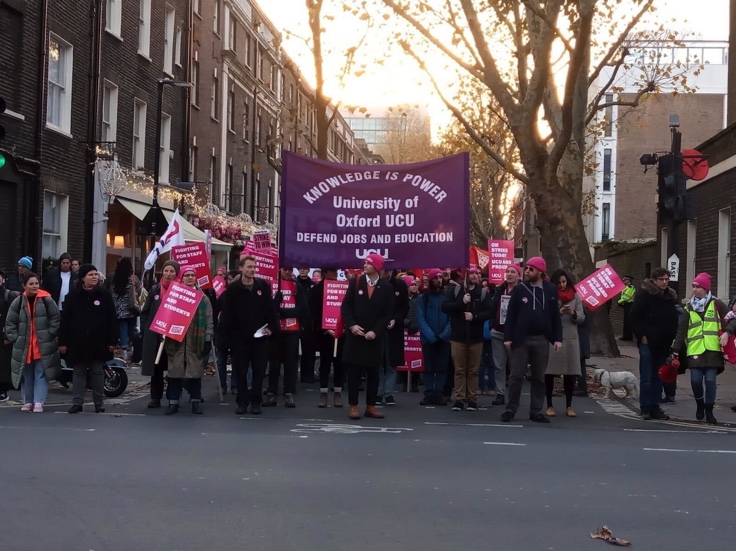
Sustenance and the City: An Interview with Jonathan Nunn.
 Map of London by Harry Darby and Anna Hodgson. (This abstract map was commissioned for Nunn’s book London Feeds Itself. Rather than marking out the city with major landmarks, this map is full of anti-monuments that Londoners should recognise – Brent Cross Shopping Centre, lampposts, bollards, The North Circular – and which feature in the book’s food writing and Nunn’s restaurant reviews.)
Map of London by Harry Darby and Anna Hodgson. (This abstract map was commissioned for Nunn’s book London Feeds Itself. Rather than marking out the city with major landmarks, this map is full of anti-monuments that Londoners should recognise – Brent Cross Shopping Centre, lampposts, bollards, The North Circular – and which feature in the book’s food writing and Nunn’s restaurant reviews.)
Who are you and what do you do? Is it right that for a long time you had a full-time job alongside journalism? Is this still the case?
I guess I’m a tea person turned restaurant writer turned editor. For ten years I worked at a shop called Postcard Teas, which was a very extraordinary and unusual job. It was like being a manager, retail assistant, bartender, sourcer and copy writer all in one go, but while also being located in the epicentre of evil in this country (Mayfair). I stopped working there physically once the food publication I started, called Vittles, became a full-time job, but I haven’t handed in my notice so I still kind of work there. It means that I theoretically could turn up for a shift tomorrow when all the writer stuff falls through.
I realise more and more now how working in tea was a preparation for the kind of restaurant writing I do at Vittles – both are assessments of quality. When you study tea you soon realise that everything has quality, whether it’s the most rarefied oolong from a single tree being sold at a price higher per gram than cocaine, or it’s a blend of the cheapest CTC to go into a teabag; that the assessment of that quality is both local and cultural, and you should learn about that culture first before coming to your opinion. You also learn that food is about people. Generally, the best tea is made by the same people year in, year out and they tend to be the most interesting people, which is kind of a kick in the teeth for terroir. It’s the same when I’m evaluating a restaurant: behind each great one there is someone who has their own idea about what quality means, and they stick to it. It doesn’t matter so much what that idea is as much as they have one in the first place.
In an interview with the New Yorker, you said that you don’t think “there’s any publication covering, in a meaningful way, the London restaurant scene”[1]. Can you explain what you meant by this?
There are plenty of publications which cover the restaurant industry – which I would define as a hermetically sealed scene of restaurants, producers, suppliers, designers, PRs and journalists mainly working in the centre of London, and which I’m very much a part of – but that’s not really the same as covering restaurants in their totality and all the different ways that Londoners eat outside of their homes. Much of that is sadly due to a shift in the editorial goals of legacy print media, which are more and more influenced by PR and trying to project a culturally and geographically homogenous image of London as a food city, plus a steep decline in the viability of alternative media. It means that many of the best publications that used to cover London restaurants in a more expansive way are either gutted or a shadow of themselves. If you look at what restaurant coverage was like in the 1990s it was more extensive and diverse than it is now. I would argue that the restaurant coverage on Vittles isn’t anything particularly new but trying to get back to that era, bar reanimating the corpse of Michael Winner.
What do you think makes a good restaurant review?
I think what unites all great reviews is that they are useful, entertaining, and persuasive. Persuasive in the sense that they should make you want to eat there, or they can change the way you perceive an area of the city, or a cuisine. Entertaining in that they should still stand up as a piece of writing if the reader has no intention of ever visiting the restaurant. And useful, in that they should be correct – or as correct as it’s possible to be – in conveying what the reader is likely to experience and what they should do to get the most pleasure out of their visit.
I always think a great review should say, without being too explicit about it, who this restaurant isn’t for as much as who it is for. Because not every restaurant needs to appeal to everyone; we don’t all have the same taste or prioritise the same things, and it would be a shame if we did. The healthiest restaurant ecosystem I can imagine is one where every restaurant that has its own idea of what quality means ends up attracting the people who feel the same way. If someone reads a review and thinks “actually, this doesn’t sound up my street” then you’ve done your job as a reviewer. It’s quite a responsibility telling someone how to spend their evening and I don’t take that lightly, even if my power doesn’t extend much further than sending someone to Cheam.
Is Vittles still a publication on the margins of mainstream journalism? How many readers does it now have?
I’m unsure if it was ever truly marginal or if it just felt that way because legacy food media in this country is so unambitious and we looked radical in comparison. We started off with about 1,000 readers and now we have 50,000, so I think it’s now dead in the centre.
Is this where you want your voice, and Vittles, to remain? Or do you want to maximise change via a more conventional platform? Is the distinction between the format of Vittles and more conventional platforms even valid anymore?
No, I don’t think it is valid – besides, the Substack newsletter model isn’t that much different to the pamphleteering on the streets of 18th century London, where you could subscribe to the rantings of some guy with a printing press making outrageous and unverifiable claims about their exploits.
So, the landscape of food journalism may be analogous to the landscape of food in London, and the city itself, as you see it, whereby “what is in the London suburbs increasingly feels more like London than what is in the centre”[2]. How would you characterise the restaurants that are in the centre? Are any of them worth going to?
Of course I go to restaurants in central London! And I love many of them. Some are pushing the limits of what it’s possible to do with food in this city, and changing the way we eat (for better or worse). What I would say is that there aren’t enough good ones to justify the amount of money and newspaper inches thrown at them. And a big part of that is to do with rent and landlord monopolisation, which inhibits what can be successful in a central London location. Most of the places I love the most, and which are the most idiosyncratic, have a unique rent situation which allows them to be generous in a way that isn’t afforded to most restaurants. There have been so many times when I’ve been struck at the uncommercial weirdness of a place, only to realise they can only survive because they own the building.
How do you feel about the relationship between social media and the food scene? Is it a blessing or a curse?
It’s both, and it’s spiralling and multiplying in ways that I don’t think I fully understand or grasp. Good, because maybe the power to make or break a restaurant shouldn’t be in the hands of some guy whose main qualification is that they are the son of a more famous journalist (or, in some cases, the son of the literal Queen). But also terrifying, because it’s completely unchecked, unverifiable, elides all context, and leads to some of the most mid food you can think of being hyped as something lifechanging. This would just be annoying, but it really does influence what restaurants put on their menus and how they present it – it’s very easy to spot dishes which have been created entirely for social media and not the experience of actually eating it.
It reminds me of what’s happened with Black Cab drivers in London, and their cannibalisation by Uber. On the one hand, The Knowledge is archaic and Uber has democratised cab driving in London; on the other, there is something valuable in that knowledge and experiencing London with your senses rather than with a GPS. Perhaps I am too much of a romantic here.
In the book you edited, London Feeds Itself, you place a lot of emphasis on immigrant communities, and on London being a unique cosmopolitan product of an imperial past. Although London is no longer the imperial capital it once was, would it be fair to say that gentrification is related to that imperial impulse, and that the city itself has become the newfound territory of a kind of micro-colonialism? How does its food scene reflect this?
I would say that although the restaurant review seems frivolous, it can be a powerful tool of determining what is and isn’t valuable in an area, and shaping narratives over who belongs in a neighbourhood. One place you can see this really clearly is Peckham. Gentrification isn’t as simple as “middle class white people moving in” – and anyway, they are usually being displaced from areas they’ve themselves been priced out of – but something that happens from the top-down, a movement of capital led by developers, landlords, estate agents. Restaurants – which have the cultural capital needed to truly transform an area – are used as pawns in this change. So restaurant writing becomes a kind of handmaiden of this change. We published a newsletter earlier this year which was just a compilation what had been written about Peckham’s restaurants within food media, and you can see, without any commentary, the disdain so many critics had for the area that was already there, the lack of respect for non-European cuisines, the idea that one experience of Peckham was important and another marginal, and how these reviews have been marshalled by those with interests in selling property. But the critics would say: “Don’t worry, it’s just lunch.”
Speaking of immigrant communities, in a recent review you sang the praises of a Chinese restaurant in New Cross, Uncle Wrinkle, in spite (or because) of the fact that it is “not authentic”[3]. Can you explain why? When are questions, and criticisms, of authenticity relevant?
I said it as a compliment! It’s not authentic to a specific region or one cuisine or a tradition, but it’s completely sui generis, a reflection of the two owners’ likes and dislikes, and the community they’re serving. In that sense, it’s authentic to themselves and the neighbourhood.
I feel we’re at a stage of London restaurants where we generally fetishise regionality and authenticity to a cuisine, but this type of ‘authenticity’ is just a set of rules, and the great food cities – Los Angeles or Tokyo for instance, go beyond this. Rules can be incredibly useful in building up a sense of how to cook, of what might go together, but the best food is always an expression of a single or communal vision – not a country or a region – and the rules are there to be broken. Uncle Wrinkle is playing Ascension while everyone else are learning scales.
What would you say to those who would view food criticism as indulgent, or frivolous, in the face of contemporary crises, such as the rising cost of living? Is this true of some food criticism?
Restaurant reviews can be as frivolous or serious as the writer wants them to be, and at their best they can be vehicles to actually explore these contemporary crises, because the restaurant is at the exact confluence of all of them. But even if they don’t – almost everyone now has to eat outside, even if they’re not at places traditionally seen as ‘restaurants’, and there is nothing frivolous about taking pleasure where you can.
A final note from me… I have to know, since food is such a large part of what you’re interested in: do you cook? What do you cook? When do you cook?
I do, and when I put my mind to it, I can cook well, but I don’t cook nearly as much as I would like. That’s partly because I’m an emotional cook and need to be in the mood, but also because the job can be such a self-imposed tyranny. Why cook when you could be out learning something useful about the city? Which is entirely self-defeating because there’s nothing more useful than cooking in building up a sense of how to taste.
When I do cook, I tend to cook very simply and something that will make me feel comfortable – unlike most meals I have to eat outside.
And from you: any final words for the firing squad?
Distrust homogeneity everywhere you find it, even if it’s something you love. The other big thing I learnt from working in tea is the evils of monocultures, and what is good for the field is good for the city too.∎
[1] Quote from Jonathan Nunn in Knight, S., ‘The Writer Changing How London Thinks About Its Food’, New Yorker (2023).
[2] Nunn, J., ‘London Eats Itself, London Plays Itself, London Feeds Itself’, Vittles (2022).
[3] Nunn, J., ‘Extraordinary Ordinariness at Uncle Wrinkle’, Vittles (2023).
Words by Helen Edwards.







